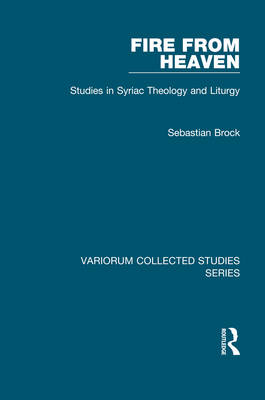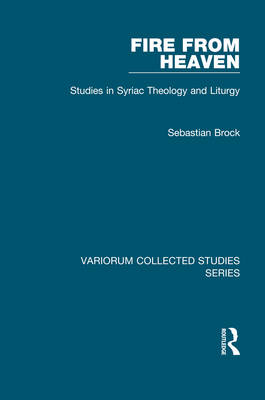
- Afhalen na 1 uur in een winkel met voorraad
- Gratis thuislevering in België vanaf € 30
- Ruim aanbod met 7 miljoen producten
- Afhalen na 1 uur in een winkel met voorraad
- Gratis thuislevering in België vanaf € 30
- Ruim aanbod met 7 miljoen producten
Zoeken
Omschrijving
This fourth collection by Sebastian Brock focuses on three areas: the christology of the Church of the East, the distinctive phraseology of the invocations to the Holy Spirit in the Syriac liturgical tradition, and two important early Commentaries on the Liturgy. The inclusion of the Church of the East into ecumenical dialogue in recent years has stimulated a renewed study of its christology, which has often been badly misunderstood. A close study of the formative texts of the fifth to seventh centuries indicates that the traditional characterisation of this Church as 'Nestorian' is not only unsatisfactory, but also thoroughly misleading. There follows a series of studies of the wording of the many invocations to the Holy Spirit to be found in Syriac liturgical texts. These bring to light a number of intriguing features, some of which can be traced back to the Jewish roots of one strand of early Syriac Christianity. Syriac also preserves one of the earliest Commentaries on the Liturgy; dating from the fifth century, it proved influential in all three Syriac liturgical traditions, and was even translated into Sogdian. This short text, and another longer work by Gabriel of Qatar (fl. c. 600), are introduced and translated in full.
Specificaties
Betrokkenen
- Auteur(s):
- Uitgeverij:
Inhoud
- Aantal bladzijden:
- 368
- Taal:
- Engels
- Reeks:
Eigenschappen
- Productcode (EAN):
- 9780754659082
- Verschijningsdatum:
- 28/05/2006
- Uitvoering:
- Hardcover
- Formaat:
- Genaaid
- Afmetingen:
- 150 mm x 224 mm
- Gewicht:
- 653 g

Alleen bij Standaard Boekhandel
+ 458 punten op je klantenkaart van Standaard Boekhandel
Beoordelingen
We publiceren alleen reviews die voldoen aan de voorwaarden voor reviews. Bekijk onze voorwaarden voor reviews.











